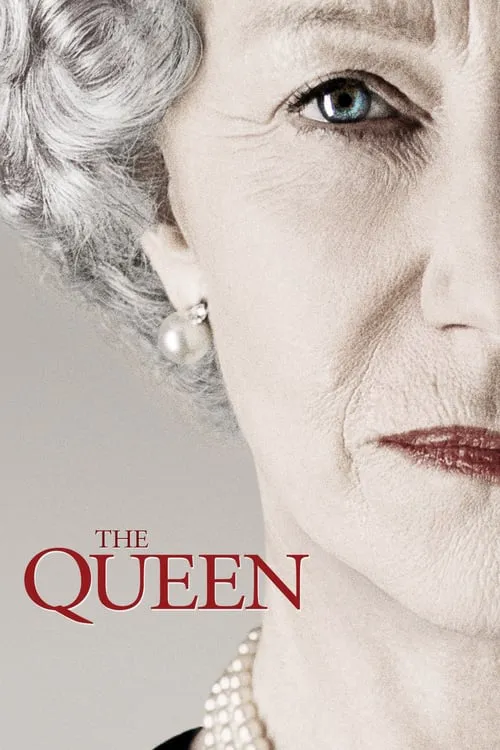The Queen

Plot
The Queen, directed by Stephen Frears, is a poignant and nuanced drama that delves into the complex and often contentious relationship between Queen Elizabeth II and Prime Minister Tony Blair in the aftermath of the tragic death of Princess Diana. The film, which premiered in 2006, is a masterclass in subtle performances, witty dialogue, and a keen insight into the inner workings of the British monarchy. The story begins on the morning of September 6, 1997, the day after the fatal car accident in Paris that took the life of Diana, the Princess of Wales. At Balmoral Castle, the royal family is in shock and turmoil, struggling to come to terms with the loss of their beloved loved one. The Queen, played with elegance and restraint by Dame Helen Mirren, is particularly conflicted, as she grapples with the need to maintain tradition and protocol in the face of the intense public grief that is unfolding across the country. Back in London, Prime Minister Tony Blair, played with charm and conviction by Michael Sheen, is trying to navigate the treacherous waters of national opinion, as the debate over the royal family's response to Diana's death begins to rage. Blair is anxious to demonstrate compassion and empathy for the people, while also ensuring that the monarchy's dignity and integrity are preserved. In a series of tense and often humorous meetings, he presses the Queen to allow for a more public display of mourning, urging her to take a greater role in the funeral proceedings and to engage more directly with the public. Meanwhile, Prince Philip, the Queen's husband, played with a sense of dry wit and exasperation by James Cromwell, is a constant thorn in her side, urging her to remain firm in her commitment to the monarchy's traditional protocols. His views are at odds with those of Prince Charles, Diana's ex-husband, played by Alex Jennings with a growing sense of desperation and disillusionment. Charles sees the Queen's stance as a betrayal of the love and affection that the nation has for Diana, and feels that she is refusing to acknowledge the reality of the situation. As the story unfolds, the Queen's determination to remain aloof and detached from the public's emotions becomes increasingly strained. Her relationship with her family, particularly her grandchildren, becomes a source of comfort, but she also struggles to balance her own personal feelings with the demands of her role. Meanwhile, Blair's efforts to coax her into a more public response to the tragedy are met with resistance, but he persists, convinced that it is the right course of action. The Queen's famous "we are trying on" remark to Blair, in which she dismisses the idea of wearing black to the funeral, becomes a pivotal moment in the film, highlighting the cultural divide between the queen and her prime minister. This scene, in which the Queen's stern demeanor is matched by Blair's growing frustration, is a tour-de-force for both Mirren and Sheen, capturing the tension and emotion of a moment that would prove to be a watershed in British politics. Throughout the film, Frears uses a subtle narrative structure to explore the complex dynamics at play. We see flashbacks of Diana's life and death, as well as scenes of the royal family's private moments, but these are interwoven with a more linear story that takes us through the negotiations between the Queen and Blair. This creates a sense of intimacy and immediacy, drawing us into the world of the characters and their struggles. Ultimately, The Queen is a film about the limits of duty and the importance of empathy. It shows us that even in the face of unimaginable tragedy, the Queen must confront the reality of her own emotions and the needs of her people. The film ends with an image of the Queen on the balcony, looking out at the crowds gathered in grief, her expression softened by a sense of understanding and compassion. It is a powerful moment, one that suggests that even in the most trying of times, the British monarchy can adapt and evolve, and that the Queen herself is capable of growth and change. Frears' direction is masterful, using a talented ensemble cast to bring the characters to life. The film's attention to period detail is meticulous, capturing the atmosphere of the time with a perfect blend of grandeur and intimacy. The script, written by Peter Morgan, is a work of genius, weaving together the threads of history and fiction with a precision that is nothing short of remarkable. In the end, The Queen is a film that will leave you feeling moved and reflective. It is a powerful exploration of the human condition, one that reminds us that even in the face of tragedy and adversity, we must always seek to understand and empathize with others. As a portrayal of the British monarchy in crisis, it is both insightful and engaging, using the story of the Queen's struggles with Blair to shed light on the complexities of the institution and its relationship with the public.
Reviews
Recommendations





